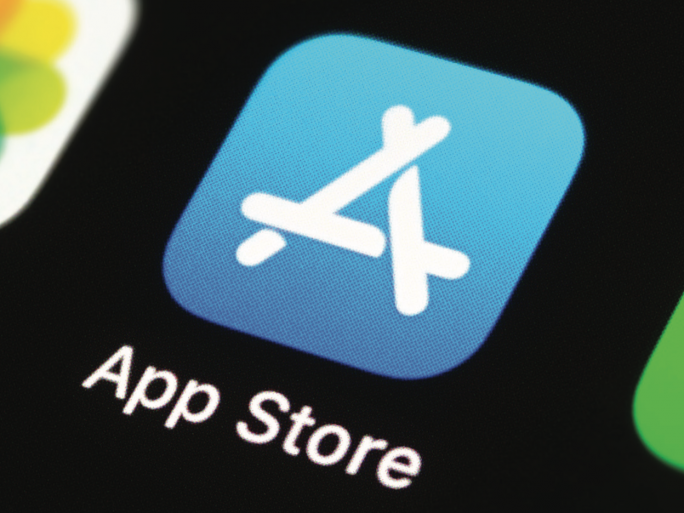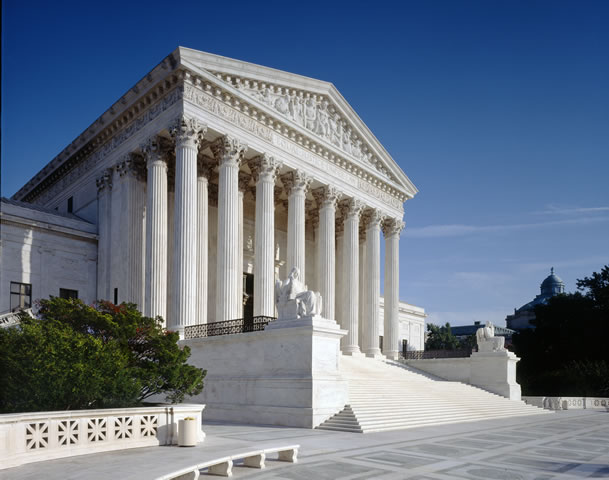US Supreme Court Snubs Apple App Store Appeal

Highest court in the United States declines to hear Apple appeal of lower court ruling in antitrust case from Epic Games
Apple’s hopes of overturning a court order to the rules governing its lucrative App Store, stemming from an antitrust case brought by Epic Games, has been dashed by the highest court in the US.
Reuters reported that the Supreme Court has on Tuesday declined to hear a challenge by Apple to a lower court’s decision that could force it to allow third-party payment systems in apps distributed through its App Store
The justices also turned away Epic’s appeal of the lower court’s ruling that Apple’s App Store policies limiting how software is distributed and paid for do not violate federal antitrust laws. Reuters noted that the justices gave no reasons for their decision to deny the appeals.

Third-party payments
Epic Games had sued Apple in 2020, in an effort to force Apple to allow third-party payment systems, as well as to allow third-party app stores on its devices.
Epic alleged that Apple was acting as an illegal monopolist by requiring consumers to get apps through its App Store and buy digital content inside an app using its own system.
Apple charges up to a 30 percent commission for in-app purchases.
In 2021 US district judge Yvonne Gonzalez Rogers rejected Epic’s antitrust claims against Apple.
However, the judge found that Apple had violated California’s unfair competition law by barring developers from “steering” users to make digital purchases that bypass Apple’s in-app system, which Epic argued could save them money with lower commissions.
The judge therefore ordered that Apple must allow third-party developers to provide links and buttons that direct consumers to other ways to pay for digital content that they use in their apps, bypassing Apple’s own payment system and the Apple commission.
In an April 2023 decision the Ninth Circuit court upheld the order forcing Apple to allow alternative payment options, but blocked Epic’s demand for third-party app stores.
It also blocked a lower court’s finding that Epic wasn’t required to pay Apple’s attorney fees.
Apple appeal
In July 2023 Apple said it would ask the US Supreme Court to hear its challenge to the lower court order.
Apple had argued in its petition for rehearing that the court’s decision would prevent it from deploying “one of the tools it uses to protect security and privacy, and thereby compete with other platforms”.
It added that evidence at the trial showed that “virtually every online platform has adopted anti-steering (or anti-circumvention) rules similar to Apple’s”.
In its petition to the Supreme Court, Apple said the Ninth Circuit had overreached by issuing a nationwide injunction, and argued the case would raise “far-reaching and important” questions about judges’ power to issue wide-ranging injunctions.
Scare screen
But now the US Supreme Court has refused to hear Apple’s appeal, which potentially threatens billions of dollars that Apple earns in commission payments.
In response, Apple was quoted by the Associated Press as saying that it will now allow app developers to provide payment links to external websites, but it would still seek to collect commissions ranging from 12 to 27 percent from them to prevent “free-riding” on the software system that powers its iPhones and iPads.
Apple also reportedly plans to impose an approval process before the external links or buttons can be placed within iPhone and iPad apps, in an effort “to minimise fraud, scams, and confusion.”
The protections will also reportedly include a so-called “scare screen” warning to consumers who click on a link for an alternate payment system saying that Apple is “not responsible for the privacy or security of purchases made on the web.”
Sweeney objections
Apple’s plan has been attacked by Epic Games CEO Tim Sweeney on X (formerly Twitter) as “bad-faith compliance”.
Sweeney maintained the revised commissions remain anti-competitive and vowed to oppose Apple’s proposal in federal court.
Apple filed a bad-faith “compliance” plan for the District Court’s injunction. It totally undermines the order allowing “buttons, external links, or other calls to action that direct customers to purchasing mechanisms, in addition to IAP”.https://t.co/ofbuMwe7SH
— Tim Sweeney (@TimSweeneyEpic) January 16, 2024
“The Supreme Court denied both sides’ appeals of the Epic v. Apple antitrust case,” he also tweeted. “The court battle to open iOS to competing stores and payments is lost in the United States. A sad outcome for all developers.”
But he added that “developers can begin exercising their court-established right to tell US customers about better prices on the web.”
As of today, developers can begin exercising their court-established right to tell US customers about better prices on the web. These awful Apple-mandated confusion screens are over and done forever. pic.twitter.com/YnFWt85MRF
— Tim Sweeney (@TimSweeneyEpic) January 16, 2024